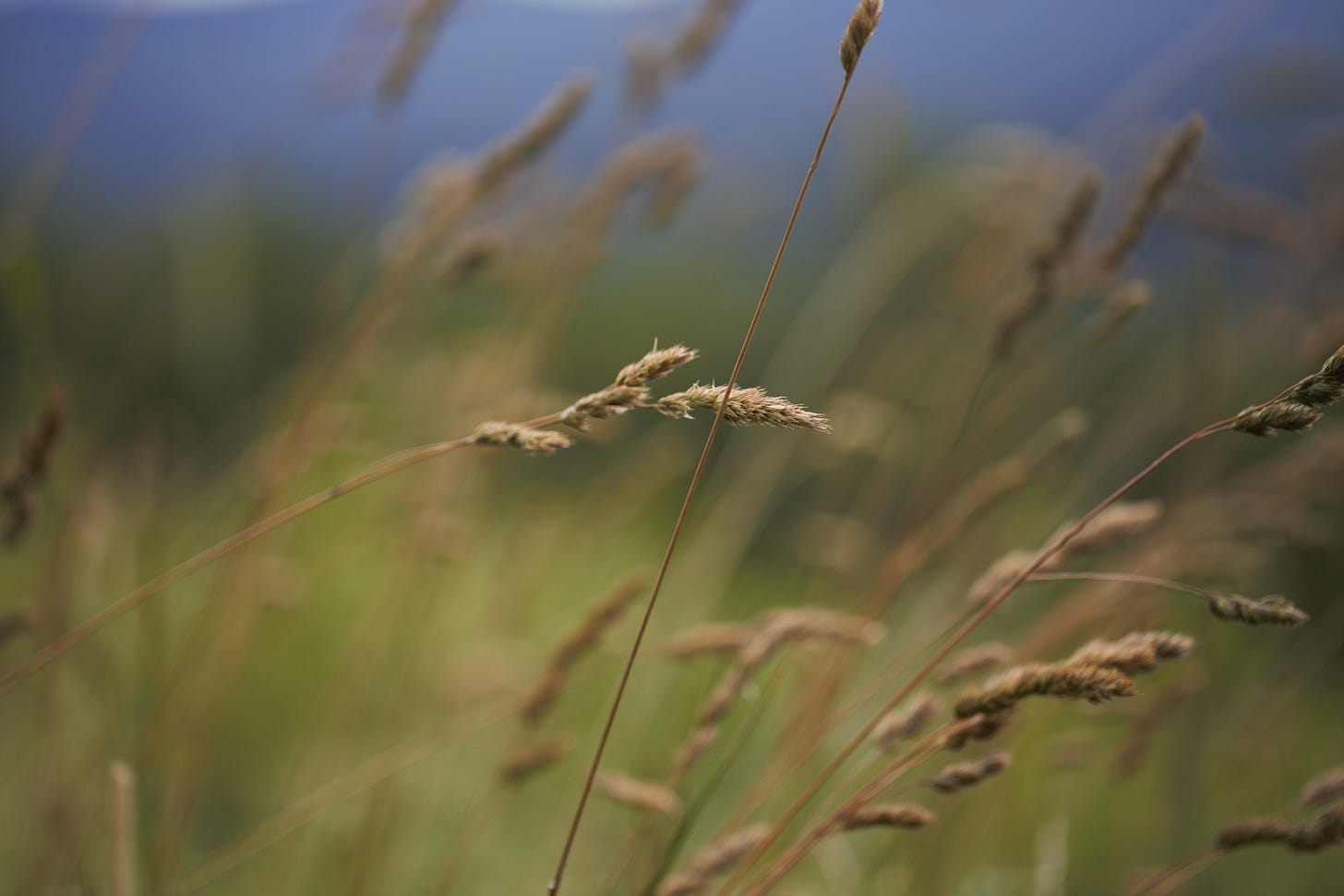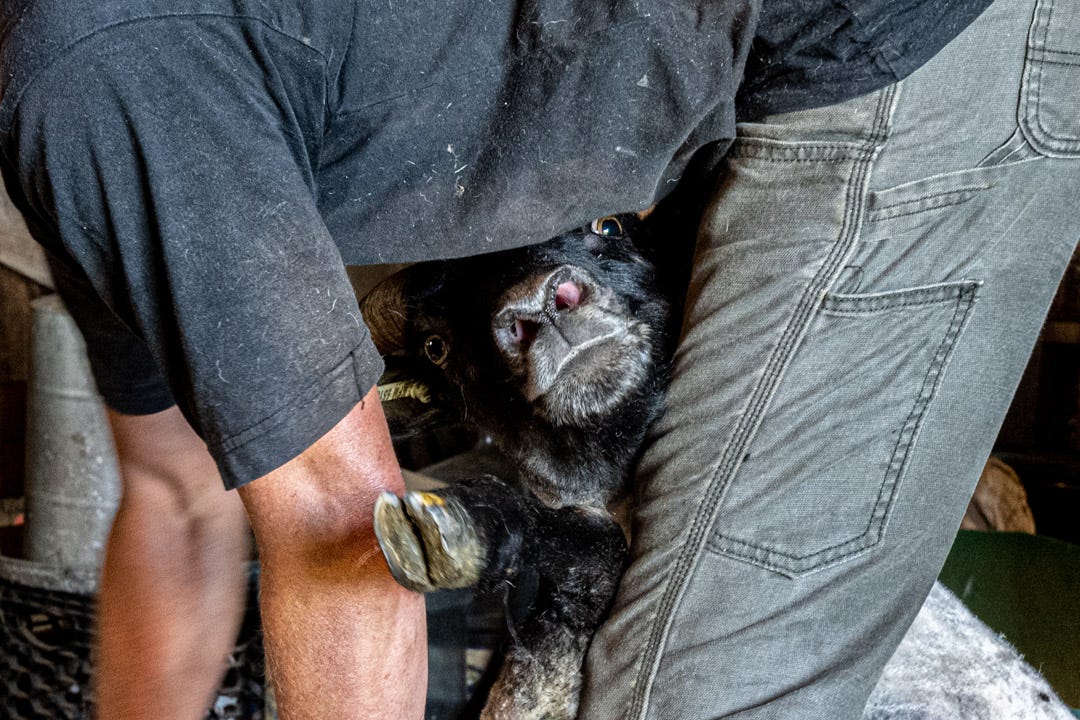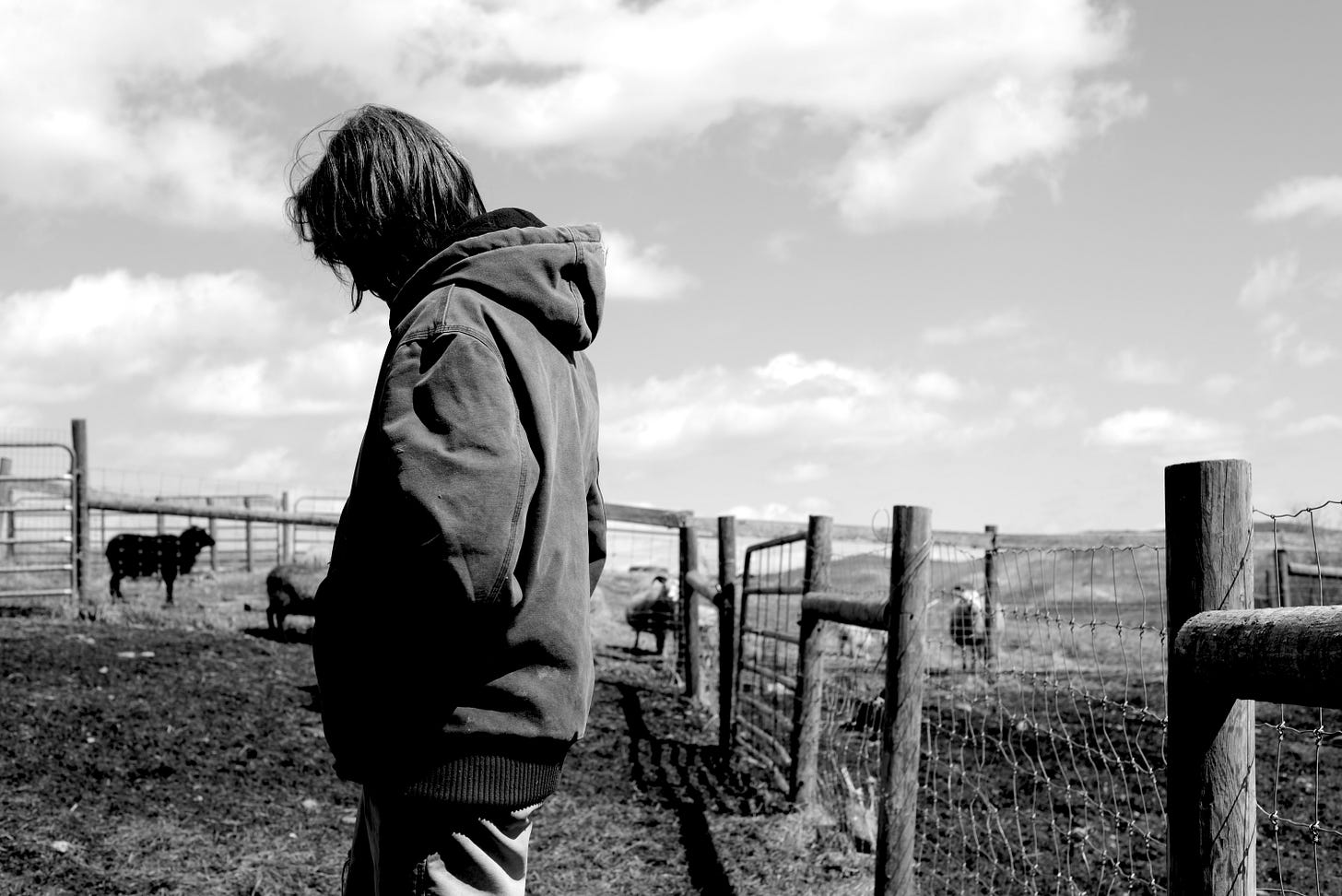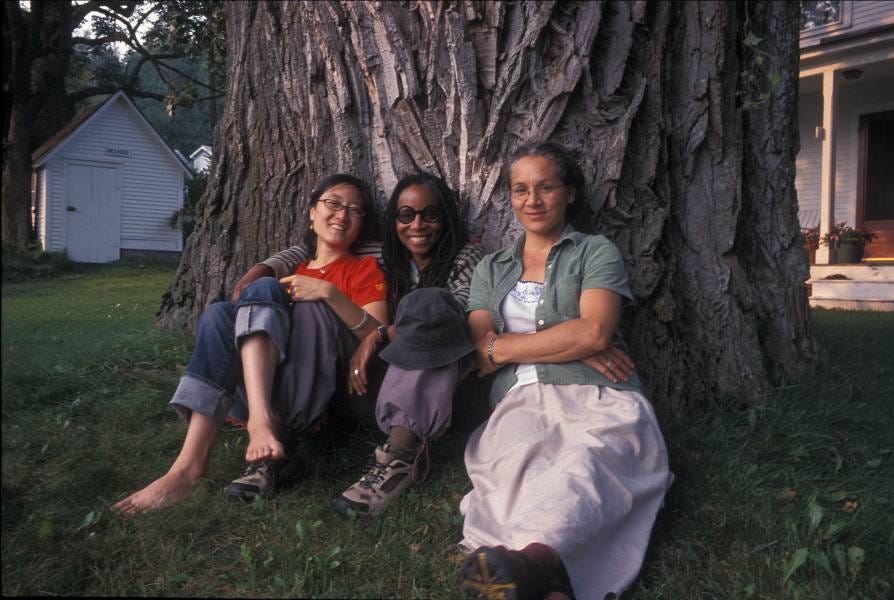“Walker, there is no path. The path is made by walking.” Antonio Machado
Hello friends,
I imagine we might all be feeling the head spin of global and personal events converging on a daily basis and utterly failing to make sense of it all, failing to know where our energy should be directed, how to protect ourselves and others from the fall out of the latest cruel executive disorder or illegal crackdown. I know I am. I want to stay focused on what I can do—be kind to people, create and embrace community events here, care for my land— while also knowing that nothing is really adequate in this time. It’s all a dizzying dance.
Which is why, while on my book tour for The Salt Stones a week ago, I didn’t find it at all surprising that I was truly dizzy. I was on my way to Boston for a cluster of three events, and I felt strange. For several days I’d felt a bit queasy and unsteady, with an ache that was creeping up my thighs and spine. I am having existential dread, I thought, and I couldn’t help wondering promoting a book as things fall apart was a kind of vainglorious nonsense I didn’t want any part of. I actually love talking to people about my book and all the themes that intertwine there; and yet I always struggle with the act of self-importance it requires to promote something I’ve created. I was raised by Brits, which gave me a giant dose of “do not think too highly of yourself…” So I was struggling mentally, which usually makes me feel bad physically. Things were feeling shadowy. My self-doubt can bring on fever symptoms if it gets bad enough.
I made it through all the Boston after-work traffic to the event at Newtonville Books, where I shivered in the air conditioning under three layers of clothing and a lovely staffer named Fiz shared that he’d just been with family in Pakistan and could not get used to AC again. “I’m always cold,” I lied. Seven people came, three of them my friends Marija, Nick and Dzidor (thank you, saviors) and I did my best to put on a good show. Then I stumbled to the car, drove eight minutes to a friend’s house, went to bed with a fever and crazy headache and tried to sleep but couldn’t do anything but remind myself to breathe. I got up to take a hot shower and passed out. Hitting the tile with my face woke me, and I made it back into bed with a cut lip and bruised cheekbone. This was a bizarre development. Maybe it wasn’t just in my mind, I was thinking at this point. Maybe I was actually sick.
It turned out…results of a blood test were quick the next day… that I had come down with anaplasmosis from a tick bite. Anaplasmosis is more acute than Lyme, but responds well to antibiotics, so I’m feeling much better already. Mildly dizzy still, mild headache, which might be my new normal. Or might resolve when I stop taking doxy in a month. I had to cancel two events, and a dear friend drove me home. As we headed north it was about to hit 100 degrees in Boston. As we headed north Trump was dropping those massive bombs on Iran.
If I wasn’t having an existential crisis before I got sick, I was definitely having one now. How is it possible that the places I work and love most in the world are infested with something that wants to kill me? How can I be singing Nature’s song and encouraging people to immerse more and more deeply in every part of it when they have more and more reasons to be scared? How do I keep renewing my positive energy for farming when the weather is so screwy — smoky skies and cold rainy days followed by intense heat—and the pests seems to be multiplying as fast as the ash trees are dying. Nothing works quite the same. Where’s the path now?
Farming depends on seasonal cycles to succeed. Now the seasons make no sense. As just one small example, ticks—something that was nowhere in my vocabulary as a farm kid, completely unknown—are everywhere now thanks to the warming climate. It would be easy to give up, but to me that would feel like giving up on nature herself, and I can’t do that. She keeps adapting and keeps going, keeps being her generous and valiant self. So I will try to do this, too.
So, a week after feeling like I’d fallen to the bottom of a well, I led my first annual (yes, it will be repeated!) Shepherd’s Retreat at Knoll Farm. Fourteen shepherds came from around the Northeast, to sleep, eat and learn at the farm. Four incredible co-instructors joined me to share their expertise on breeding, animal handling, fiber, butchering, silvopasture and the woolly life. Two and a half days together. Physically, I was dragging, but emotionally I was all there. To share knowledge and build community around shepherding turned out to be the most uplifting and healing thing I could have ever done.
I heard and shared stories of stubborn patience, of failure becoming triumph, of learning by doing, of concern to do the right thing, of love, of honoring death, of needing each other.
Rachel shared that she had always felt like she didn’t “fit anywhere in life, didn’t have a purpose,” until she started her flock two years ago, got dogs, started renovating old land and turning all her thoughts to building a viable business. “I go out in the field with the animals and hear them chewing and calling to each other and I have this profound sense of belonging and wholeness,” she said.
Leo shared how much it meant to her that the only old animal I kept in the flock and described as “sacred” was the queer one, Bronwen, who is both male and female and was blessed by a Navajo weaver who said the very rare intersex animal, like Bronwen, brings luck to the flock (that story is in my book). “We need this story to learn how to care for each other,” L said.
Carole, in her 60s, who’d had a big career in climate policy and knew nothing about farming shared that what had the most meaning to her now was to figure out this totally new thing, how to raise goats to graze out invasive knotweed along the river. Practical, hands-on activism.
Elaine, the oldest and longest shepherd among us, described her animals with such reverence and still has so much zest for this life, 30 years in, raising her flock and weaving gorgeous rugs with wool she has bred and selected for its fineness.
Mary, who worked with me years ago and is now an incredible shepherd, shearer and butcher, told the story of taking our lambs to a butcher that the next day was shut down for animal abuse. That incident, rather than turning her off the whole thing, made her want to become a butcher, to face head-on what seems scary or “behind a veil” and to do it with as much integrity as possible. (She is now Vermont’s #1 butcher for on-farm slaughter.) I’m so proud of her for that bravery. We all need that now.
At night I’ve been reading Rebecca Solnit’s masterful, quiet but profound book of essays, No Straight Road Takes You There. In her exploration of social movements and the often indirect, meandering and unpredictable way that change happens, I have found so much resonance with the work that Peter and I have been doing for 24 years.
“The route is over mountains or through forests and beyond what we know—and it may also be through inconceivable beauty and transformation as well as peril; it may be uncharted, or steep, or take decades or centuries to traverse; we may get there through storytelling, alliance, or the appearance of some unanticipated participants. That’s a declaration of difficulty and uncertainty but also of possibility that I offer as encouragement to keep going.”
My friend, Scott Chaskey, poet-farmer extraordinaire (both his poetry and his farming; I was so lucky as to be his editor on his latest book, Soil and Spirit) recommended a book on pastoralism to me called Anima, about the traditional pastoralists in the Balkans. I ordered it immediately and will report more about it as soon as I’ve read it (many more book recommendations to follow in these pages!). But here’s a quote that Scott sent because he knew from The Salt Stones how much I believe in devotion to something as having transformative power.
“We have forgotten that this too is something we can do… walk with animals, live with animals, care for animals and be cared for by them. Even make a living from it. Today, it is just as difficult to make a living from pastoral farming as it is from making noncommercial art, music or literature. You must be fueled by a devotion that can’t be dampened by rain or burned up by fire.”
A Quick Update on Cousin Cottonwood
A very wise friend, Evelyn White, author of the classic biography of Alice Walker, wrote to me about the Cottonwood after reading my last Substack piece about the heartbreak of that aging giant: “I think Cousin Cottonwood wants to be honored with a beautiful community ceremony and then safely, and lovingly, taken down,” she said. “CC does not wish to do any harm by crashing down on your house, the barn, the road, a person.”
Others of you said the same thing in different words, and it really helped my resolve, though I also shiver with dread every time I walk under it and imagine its loving arms no longer arching over the house and lawn and little barn. It’s having a wonderful summer. As always, it’s keeping us cool.
Evelyn came to the farm for a retreat nearly 20 years ago. She sent me this poem, which I share with you with a photo of her (center) and two other dear ones from that long-ago retreat for people dedicating their lives to brave work.
Cotton?
Not for me, with all its allusions (real and imagined) to the brutality of slavery
Fast forward to Knoll Farm
Picture this: Three of us. All women of color!
Who knows how it happened?
But there we are
Smiling, united, free
With our backs gently nestled against
Cousin Cottonwood Tree
---- Evelyn C. White, 2025
Thank you for pausing with me. May you be gentle with those you love and fierce against injustice, wherever you see it.
Helen









